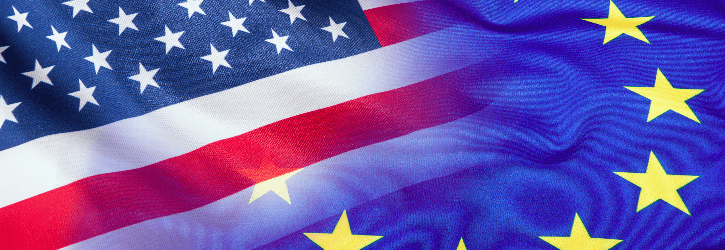Welcome To The Data Leak Lawyers Blog
We focus on the latest news surrounding data breaches, leaks and hacks plus daily internet security articles.
We focus on the latest news surrounding data breaches, leaks and hacks plus daily internet security articles.

Consumer organisation Which? thinks so.
The not-for-profit charity is calling on the government to consider the protections and rights afforded to data breach victims. As the EU General Data Protection Regulation looms ever closer, Parliament has been debating the Data Protection Bill and what rights and responsibilities should be included.
Which? believes that consumers should be adequately protected when corporations neglect and fail in their data protection responsibilities in efforts to attempt to maximise profits and expand their businesses.
read more

It should always be the case that cybersecurity is more important; hands down.
After suffering a data breach, organisations face all sorts of financial losses, including penalty fines for not complying with data protection obligations; or claims brought by data victims for compensation; and loss of profits as shares drop and customers turn away from them. Data breaches can have a huge impact on consumer confidence – a cost that can’t always be calculated so easily.
Prevention should always come ahead of dealing with an aftermath that could have been averted in the first place!
read more

West Sussex County Council has apologised to numerous business owners for an ironic data breach that occurred in the process of inviting them to a cybersecurity event.
Located in Chichester, the Council sent an invite to some 200 individuals’ email addresses but used the wrong ‘blind carbon copy’ option, revealing the recipients’ email addresses to each other.
It’s a common form of breach – one that has had grave consequences in other cases, like that of the 56 Dean Street Clinic we are helping people claim for when they revealed the personal details of patients using the clinic for HIV services.
read more

The Information Commissioner’s Office (ICO) conducted a study to see how U.K. citizens feel about their personal data being shared with organisations and businesses, and the results reflect an inherent mistrust and lack of confidence in how their data is being stored and handled.
The results of the study are likely to have been influenced by the colossal and numerous high-profile data breaches in the last couple of years that have seen millions of people have their personal data breached time and time again.
read more

Research tells us that the biggest threat to a company or organisation’s cybersecurity is its own employees.
Although cyber-attacks are usually initiated by third party actors with malicious intent, it can be the shortcomings of employees that allow systems to become vulnerable. On top of that, employees who fail to adhere to policies and procedures are normally responsible for data leaks. With many employees working remotely, or with the ability to log in to servers from home, risks are increasing all the time.
read more

Law changes in the coming months mean that the Information Commissioner’s Office (ICO) enforcement powers will no longer be subject to a maximum penalty fine of only £500,000. If any person, company or organisation is found to have breached Data Protection laws in the U.K., they may find themselves slapped with a much heftier fine.
The new maximum fine can be 4% of the company’s global turnover or €20million (almost £17million); whichever is the largest.
The government is introducing this as they adopt stricter E.U. laws for data protection into U.K. legislation. Despite Brexit, the government have said that the new regulation will be implemented by May 2018 in any event.
read more

Data Protection should always be a huge concern for companies and organisations. As with most laws, there are differences that can give some people in some countries more rights than others, such as the differences and similarities with data breach notification laws within both the EU and U.S.
In a world where data breaches can be cross-jurisdictional – i.e. a hacker from the U.K. hacks an American business – these differences could become quite important. It’s a challenge we face when representing victims for claims.
So, what are some of the characteristics of EU and U.S. data laws?
read more

It seems like we can never escape them; they’re in the headlines and our news feeds all the time, and data breaches are such a common occurrence these days.
So, what is being done to stop data breaches occurring?
Surely with advances in smartphones, self-driving cars and artificial intelligence, we have the technology and skills to stop hackers from cracking websites and security walls? Surely we have access to enough decent cybersecurity software to protect data, and are capable of training staff and enacting procedures and protocols to protect data from leaks?
read more

These days, data breaches are happening left right and centre. A lot of them are dealt with discretely and we may never hear about them, but for those that are publicised, statements from offending organisations can be littered with jargon and tech-words.
Sometimes when things go wrong, organisations are keen to blame anyone and anything but themselves. Some may play that they are the victims of “super hackers” when in reality the breach could have been avoided with better cybersecurity in place. To try and understand what they may be saying underneath the “waffle”, we’ll go over a few simple terms.
read more

Our Data Leak Team are already representing a large group of victims of the We-Vibe data breach scandal. The trend of sex toy data breaches is alarming.
Lovense has admitted that its mobile phone app has been secretly recording audio files while its vibrators were in use.
The company has blamed a “minor software bug” for the apparently unintentional recordings.
Several users reportedly made the horrifying discovery when they spotted unusual sound files stored on their phones. As you can imagine, this is a huge cause for concern and can amount to a misuse of private information.
read more
Fill out our quick call back form below and we'll contact you when you're ready to talk to us.